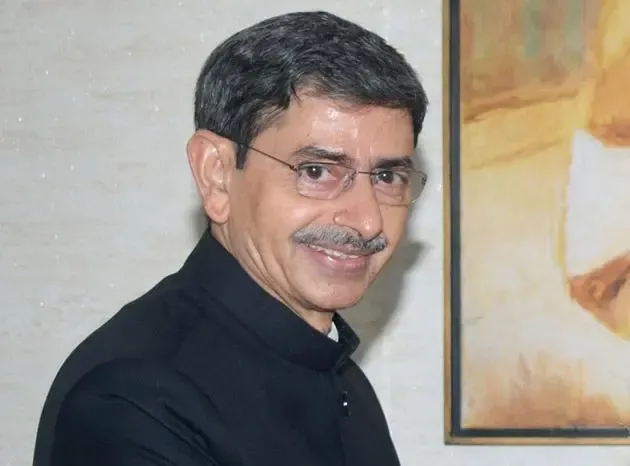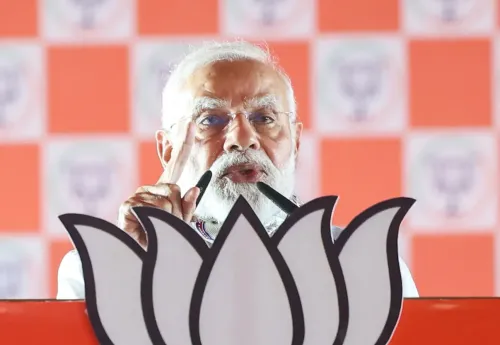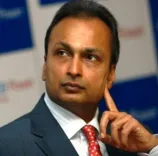PMK and Congress Celebrate Supreme Court's Ruling Against TN Governor Ravi

Synopsis
Key Takeaways
- Supreme Court ruling strengthens state authority.
- Governor's arbitrary delay in Bills condemned.
- Legislation must be approved within four months.
- Impact felt across all state Governors in India.
- Calls for swift appointment of Vice-Chancellors.
Chennai, April 8 (NationPress) The Pattali Makkal Katchi (PMK) expressed its support on Tuesday for the Supreme Court’s ruling against Tamil Nadu Governor R.N. Ravi, describing it as a significant decision that bolsters the authority of state governments. The Congress party in the state also celebrated this ruling.
In a statement, PMK founder Dr. S. Ramadoss remarked, “This verdict puts an end to the capricious practice of Governors delaying Bills passed by State legislatures. It stipulates that any Bill must receive approval within a maximum of four months.”
He went on to say, “Today’s ruling restores considerable power to State governments. It guarantees that Governors cannot postpone or hinder vital legislation that benefits the State.”
Dr. Ramadoss further called on the Tamil Nadu government to promptly appoint Vice-Chancellors for eight state universities, stressing the importance of ensuring students’ futures.
It is noteworthy that the PMK contested the 2024 Lok Sabha elections in alliance with the BJP.
The Supreme Court’s ruling has garnered support from various political factions.
The President of the Tamil Nadu Congress Committee, K. Selvaperunthagai, praised the judgment, asserting, “The apex court has denounced the anti-people actions of the Governor and has communicated a clear message against the intentional delays in endorsing Bills that were unanimously passed in the Assembly.”
He added, “The ruling affirms that all powers reside with the elected government, while the Governor — as a nominal head — possesses only limited authority. The court has firmly dismissed the BJP’s attempts to undermine the Constitution.”
DMK Rajya Sabha MP and Supreme Court lawyer, S. Wilson, also commended the Supreme Court’s verdict, stating, “This decision impacts not just the Tamil Nadu Governor, but all Governors nationwide. Consequently, the Governor will no longer serve as the Chancellor of State universities in Tamil Nadu effective immediately.”
He indicated that the Supreme Court’s ruling also paves the way for a legal challenge against President Droupadi Murmu’s delay in granting assent to the NEET exemption Bill approved by the Tamil Nadu Assembly.
The Supreme Court ruled that Governor R.N. Ravi acted unlawfully by withholding approval for ten Bills, some of which have been pending since January 2020, and subsequently sending them to the President after the Tamil Nadu legislature re-passed them.
A Bench, consisting of Justices J.B. Pardiwala and R. Mahadevan, determined that the Governor lacked the authority to reserve a Bill for the President once it had been re-passed by the Assembly in its original form.
The court indicated that the Governor’s actions exhibited a lack of bona fides and declared that the ten Bills were considered to have received assent on the date they were re-presented to him.
The ruling emphasized that under Article 200 of the Constitution, the Governor has no discretionary power and must act on the advice of the Chief Minister and the Council of Ministers.
The court clarified that only a significantly altered Bill can be reserved for the President’s assent upon re-presentation, ruling out the Governor’s ability to simply withhold assent.
The apex court's decision followed a plea from the Tamil Nadu government contesting Governor Ravi's refusal to approve multiple state Assembly Bills. The state sought judicial intervention to compel the Governor to decide on Bills within a specified timeframe.
Establishing deadlines for Governors to act on state legislation, the Bench ruled that inaction could be subject to judicial review.
aal/rad









